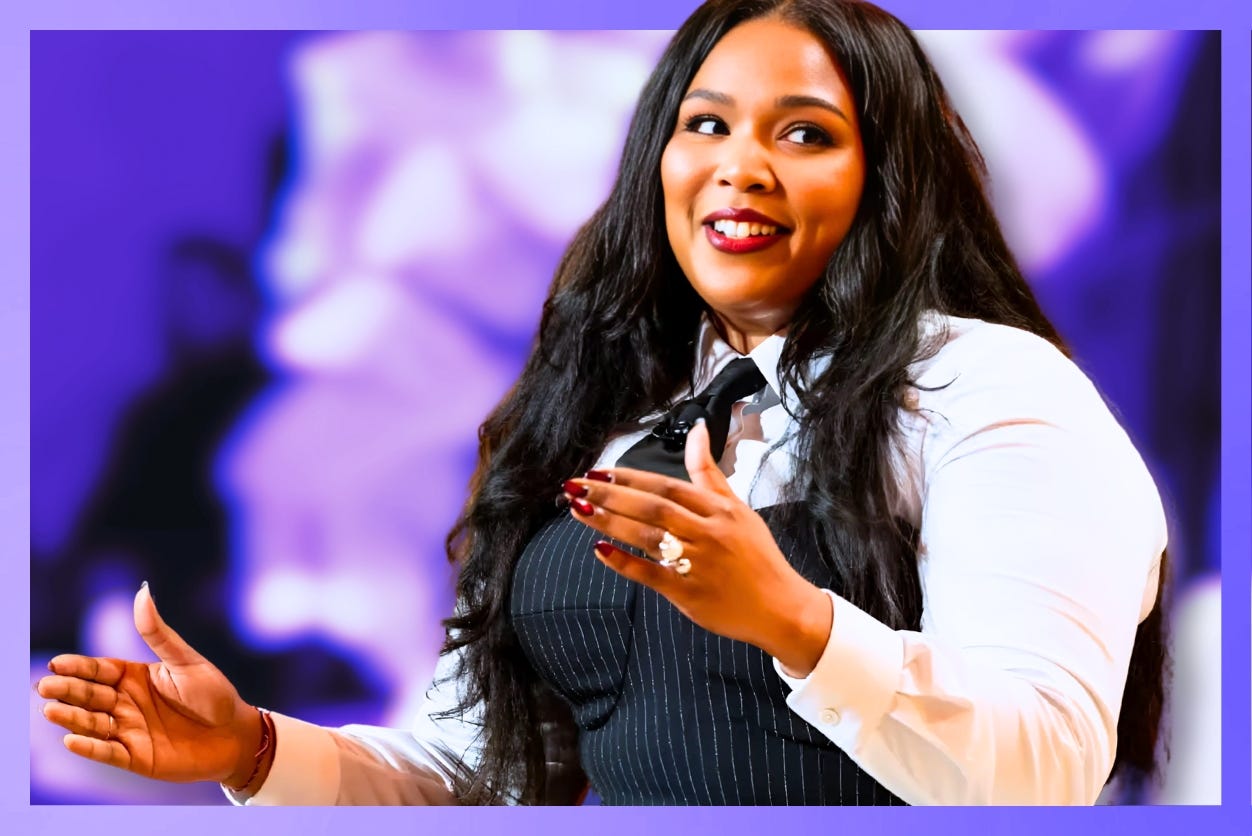Lizzo's New Era: Body Positivity is Out, But What About Those Lawsuits?
After months out of the spotlight, Lizzo addresses body neutrality and business success but remains silent on ongoing legal battles.
Is Lizzo slowly making her way back into public life? Word dropped today that the Minnesota native, neé Melissa Jefferson, will campaign with Kamala Harris in Michigan this weekend.
On Monday, she sp…




